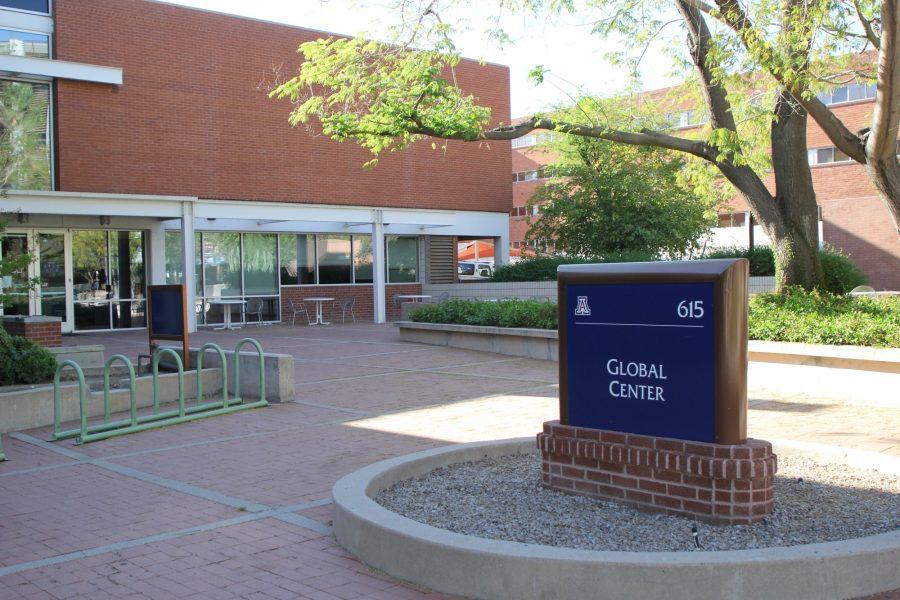The opportunity to study abroad is often seen as a once-in-a-lifetime experience, and for many students across the world, studying abroad offers them a chance to fully immerse themselves in a new environment and culture. This helps students learn about different cultures and languages and develop a deeper understanding of themselves and the world.
Studying abroad can further our world’s global awareness and leave a lasting impression on both the students participating in the study abroad program and the faculty.
Claire Sorensen, a UA environmental science major, studied abroad in the fall of 2021 at St. Mary’s University in London. She spoke about the importance of studying abroad.
“I think it’s really important because you get a global perspective and you get to experience other cultures and meet a lot of people. You’re placed in a setting that you wouldn’t normally be in outside of your comfort zone and so I think it offers a lot of room for growth,” Sorensen said.
According to the University of Delaware‘s history information, the first study abroad programs were developed in the 1920s at the University of Delaware as a way for students to conduct a learning exchange with other partnered schools from various countries around the world. During that time period, very few universities and colleges offered study abroad programs. It wasn’t until the mid 1960s to late 1970s that study abroad programs became more widespread across various colleges and universities.
As study abroad programs increased in popularity, the programs expanded and accommodated high school students. These programs geared for younger students were often referred to as foreign exchange programs. These programs for high school students were readily established in the early 1960s. However, even though students could study abroad, they could not stay abroad for long periods. This became an obstacle as many study abroad and foreign exchange programs lasted a few months to follow the same entire semester education schedule. It wasn’t until 1961 that student visas were made available within the United States. This granted many students the opportunity to travel abroad and stay longer overseas due to the student visa, according to Northwest Student Exchange.
According to DISabroad.org, approved funding for study abroad programs opened options to university students to help fund their travel and education abroad. With this implementation of funding and grants made available to students, it helped increase the number of students able to participate in study abroad programs. Many organizations became more established and grew to help assist with the growing numbers of students studying abroad. This subsequently provided more variety to personalize the student’s study abroad experience.
RELATED: Disability Cultural Centers provide safe space for disabled UA students
Jacob Eavis, a recruiter for the UA Study Abroad Global Office, spoke about the various funding opportunities provided to students for studying abroad.
“There are many ways to help finance a study abroad experience and we can help students understand the options that are available. We know that study abroad can sound like an inaccessible opportunity because of costs but there are so many wonderful funding opportunities out there to help students find and fund their own study abroad journeys,” Eavis said.
In recent years due to the pandemic, study abroad programs were completely halted in many countries around the globe and it made traveling outside the country challenging.
This impacted many study abroad students who had to migrate back to their home country to follow safety and health precautions. Even though some study abroad programs are currently available to a limited number of people, there are still many key differences that have drastically changed and made studying abroad very different than it was in prior years, according to InsideHigherEd.com.

According to TopUniversities.com, students studying abroad have helped broaden their perspective on the world and increase their understanding of different cultures. This provides a unique experience to step out of one’s comfort zone and fully embrace the culture of the country the student is studying abroad in. Studying abroad also has helped students be able to form connections and be able to develop global awareness. Many university students also report having higher levels of personal satisfaction and increased optimism for life after attending a study abroad program. While studying abroad, students can often learn how to become more independent and will often experience change within their personal lives.
“I like to think of study abroad as a coin and on one side you have the academics and the other you have the cultural experience. I think both are equally important and it is hard to help students find a study abroad program that helps them achieve success in both aspects,” Eavis said.
Eavis said he believes that one of the major benefits of these programs is getting to learn about a topic from a different point of view.
“When our students return from study abroad this intercultural exchange is what they say changes and helps them grow the most and is usually the highlight of any study abroad program,” Eavis said.
According to GoAbroad.com, many people who study abroad while in college or university will often become travelers and visit other places abroad. Through this experience, it helps students become more inclined and open to embracing different cultures and appreciating cultural differences between one culture to another.
Studying abroad often allows students to hone the new skills they’ve acquired by studying abroad. For example, some study abroad students may become fluent in a different language and could use their skills to become language translators. These skills and experience can be applied to the student’s resume and depending on the student’s career after college, and it can help students to become better candidates for future employment.
Kim Newton, a professor for the UA School of Journalism, is one of the UA study abroad program leaders for the Orvieto, Italy program. He spoke about essential takeaways of studying abroad.
“Even though it can be costly, I think it just changes your whole perspective about your environment in the world and brings you closer to people, and I think that’s just so important and you can’t get a better education than dropping into another country and experiencing it,” Newton said.
Follow Selassie Wilson on Twitter















